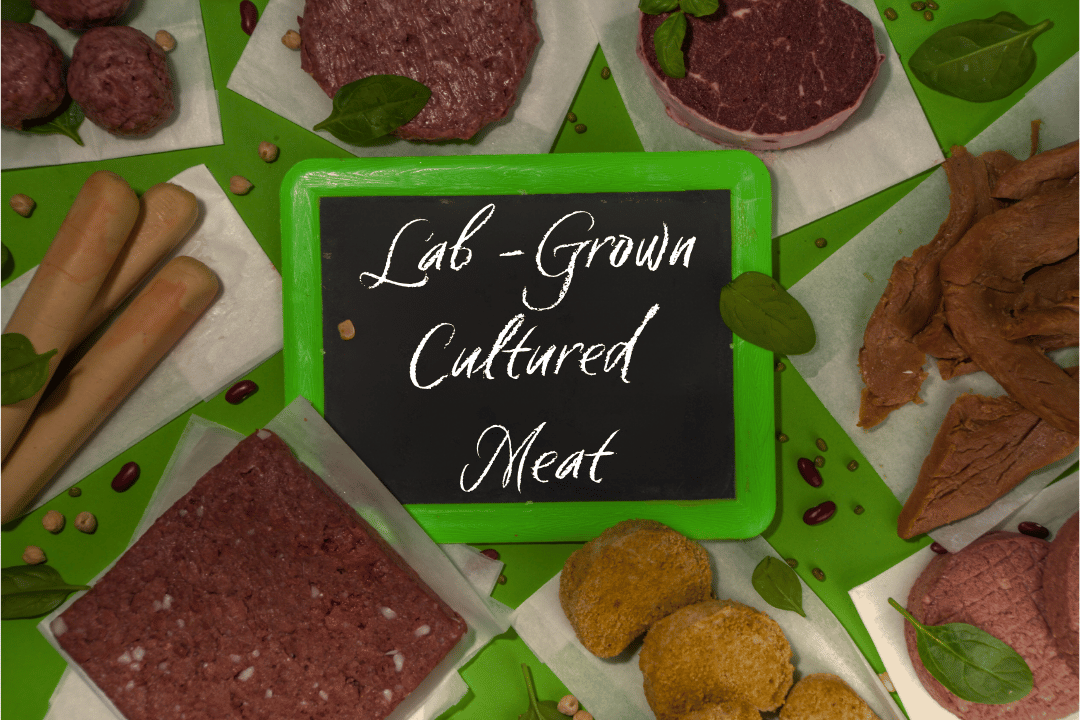Cultured meat, also known as lab-grown or cell-based meat, has emerged as a promising alternative to traditional meat. With the potential to address environmental sustainability and animal welfare concerns, this innovative food technology has garnered significant attention. However, consumer acceptance remains a critical challenge. Recent research has shed light on the moral values that influence attitudes toward cultured meat, mainly focusing on the role of purity. This study explores the findings of a study that examined how moral foundations shape attitudes toward cultured meat in the USA and Germany.
What is Cultured Meat?
Cultured meat is made by taking a small number of cells from a living animal and growing them in a nutrient-rich solution. This process creates meat without the need for large-scale animal farming, which could help reduce the environmental impact and improve animal welfare. Cultured meat differs from plant-based meat alternatives, which are made from plants.
The cultured meat market is experiencing growth, as many companies globally are investing in this innovative technology. There has also been significant progress in regulations, with Singapore leading the way by approving the sale of cultured meat in 2020, followed by the USA in 2023.
What is the role of moral foundations?
It’s essential to consider Moral Foundations Theory (MFT) to understand consumer attitudes toward cultured meat. MFT proposes that people’s moral judgments are based on five foundations: harm/care, fairness/reciprocity, loyalty/ingroup, authority/respect, and purity/sanctity.
Harm/Care: Concerns about the well-being of others.
Fairness/Reciprocity: Emphasis on justice and equality.
Loyalty/Ingroup: Valuing loyalty to one’s group or community.
Authority/Respect: Respecting authority and social order.
Purity/Sanctity: Concerns about purity, contamination, and sanctity.
This study specifically focused on the harm and purity foundations to see how they influence attitudes toward cultured meat.
The study surveyed 1861 participants from the USA and Germany. Participants completed the Moral Foundations Questionnaire (MFQ) to assess their moral values and answered questions about their attitudes toward cultured meat. The study’s methodology involved a quantitative survey approach, which allowed for the collection of large-scale data on moral values and attitudes toward cultured meat, enhancing the reliability and generalizability of the findings.
Key measures included:
Willingness to eat cultured meat: How likely participants were to try, regularly eat, or buy cultured meat.
Perceived goodness: Participants’ overall positive or negative feelings toward cultured meat.
Perceived unnaturalness: The extent to which participants viewed cultured meat as unnatural.
Absolute opposition: The belief that cultured meat is wrong regardless of its benefits or risks.
They found that the moral foundation of purity was a significant predictor of negative attitudes toward cultured meat in both the USA and Germany. However, this relationship was much stronger in the USA. On the other hand, the harm foundation did not significantly predict attitudes toward cultured meat.
In previous studies, people often mention the unnaturalness of cultured meat as a reason for their rejection. Our research is the first to provide direct evidence linking this to the moral foundation of purity, showing that individuals who score high on the purity scale are more likely to view cultured meat as unnatural and reject it overall. This finding highlights the role of purity-related emotions, such as disgust, in the rejection of cultured meat. Previous research has connected purity judgments to disgust, suggesting that those who experience higher levels of disgust are more likely to oppose cultured meat based on moral objections or concerns about naturalness. Understanding the relationship between disgust, purity, and the moralization of cultured meat is a crucial area for future research.
Purity’s Influence:
Participants who scored high on the purity subscale of the MFQ were less willing to eat cultured meat. They also perceived cultured meat as less good and more unnatural. Purity concerns led to more significant absolute opposition to cultured meat.
In contrast, the harm foundation, which focuses on reducing suffering and promoting well-being, did not reliably correlate with positive attitudes toward cultured meat. This finding was surprising given the pro-cultured meat narrative around harm reduction.
Cultural Differences
The stronger relationship between purity and negative attitudes in the USA compared to Germany suggests cultural differences in how purity concerns are perceived. In the USA, moral concerns about purity may be more pronounced, influencing more excellent resistance to cultured meat.
Possible reasons for these cultural differences include:
Cultural Narratives: The USA has a diverse cultural landscape where purity concerns might be more integrated into moral judgments.
Media Influence: The portrayal of cultured meat in the media could affect perceptions differently in each country.
Regulatory and Market Context: The level of exposure and acceptance of new food technologies varies between countries.
Understanding these cultural nuances is crucial for developing effective strategies to promote cultured meat acceptance.
Implications for Cultured Meat Advocacy
The findings of this study have important implications for advocates and companies working to promote cultured meat. Addressing purity concerns is essential for increasing acceptance. Here are some strategies:
Transparent Communication:
Provide clear and transparent information about the production process of cultured meat. Emphasize safety standards and the natural aspects of cell growth.
Educational Campaigns:
Educate consumers about the environmental and ethical benefits of cultured meat. Highlight how cultured meat can address issues related to traditional meat production.
Addressing Misconceptions:
Counteract the perception of cultured meat as unnatural through informative campaigns. Use positive language and relatable narratives to frame cultured meat as a safe and innovative alternative.
Cultural Sensitivity:
Tailoring communication strategies to different cultural contexts is a way to show respect for diverse perspectives and values. This approach should make the audience feel valued and respected, enhancing their receptiveness to the message about cultured meat. Understand and respect cultural values that may influence acceptance.
By focusing on these strategies, advocates can better address the moral concerns that drive resistance to cultured meat, particularly those related to purity.
The study highlights the significant role of moral purity in shaping attitudes toward cultured meat, especially in the USA. While harm reduction is a crucial narrative in promoting cultured meat, purity concerns must also be addressed to foster acceptance. Understanding these moral foundations and cultural differences is crucial for developing effective communication strategies and promoting a more sustainable and ethical food system.
Cultured meat has the potential to revolutionize the way we produce and consume meat, offering benefits for the environment, animal welfare, and human health. By addressing the moral concerns that influence consumer attitudes, we can move closer to a future where cultured meat is widely accepted and embraced. This potential for change should inspire hope and excitement for a more sustainable and ethical food system.



